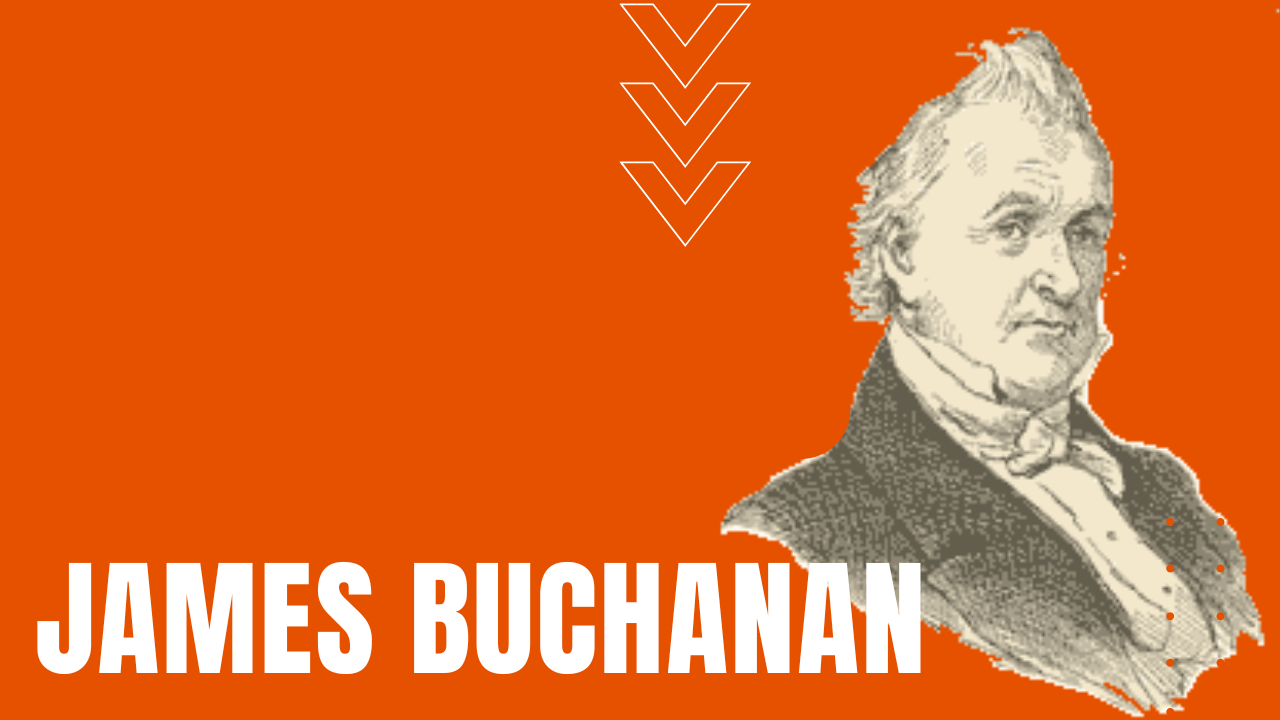James Buchanan: Biography of The Bachelor President

Born in 1791 in Cove Gap Pennsylvania, James Buchanan opened a successful law practice in 1812, before serving in the Pennsylvania legislature as a member of the Federalist Party.
Early Life in Politics
Elected to the U.S. House of Representatives in 1820, over the next decade of service, Buchanan flipped to the Democratic Party following the dissolution of the Federalist Party, appointed ambassador to Russia in 1831 by President Andrew Jackson.
Returning to the states two years later, in 1834, Buchanan was elected to the U.S. Senate for the State of Pennsylvania, holding office for the next eleven years, until he resigned his seat to become President James Polk’s secretary of state, helping to expand the nation’s territory by one-third, thanks to the annexation of Texas and much of the present-day American Southwest following the defeat of Mexico during the Mexican-American War.
Buchanan’s Campaign For Presidency
After serving as minister to Great Britain during the presidency of Franklin Pierce, by the time Buchanan ran for president in 1856, the country by now had grown deeply divided over the issue of slavery, and while his primary Republican challenger, John Fremont, asserted that the federal government should ban slavery in all U.S. states and territories, Buchanan won the White House on a more moderate platform that the issue of slavery should be decided by individual states and territories.
The only bachelor to hold the office of U.S. president, Buchanan earned the nickname “Ten-Cent Jimmy” by his Republican opponents, after Buchanan maintained during his presidential campaign that 10 cents was a fair daily wage for manual laborers.
Slavery in America
The issue of slavery in America came to a head two days after Buchanan was sworn into office, when the Supreme Court handed down its Dred Scott decision, ruling that the federal government had no regulatory power over the issue of slavery, at the same time denying African Americans, free or enslaved, the rights of citizenship.
Tensions between the abolitionist North and the slaveholding South worsened with Buchanan’s support of the Lecompton Constitution, which would have allowed Kansas to become a slave state, while in October of 1859, John Brown’s raid on the federal arsenal at Harpers Ferry Virginia pushed a nation to the brink of civil war.
Retirement vs. Re-Election
Upholding his campaign promise not run for re-election, after Abraham Lincoln won the election of 1860, Buchanan reportedly told his successor, “If you are as happy in entering the White House as I shall feel on returning to Wheatland—his Lancaster Pennsylvania estate—you are a happy man,” making James Buchanan the last sitting president before a nation went to war with itself.
